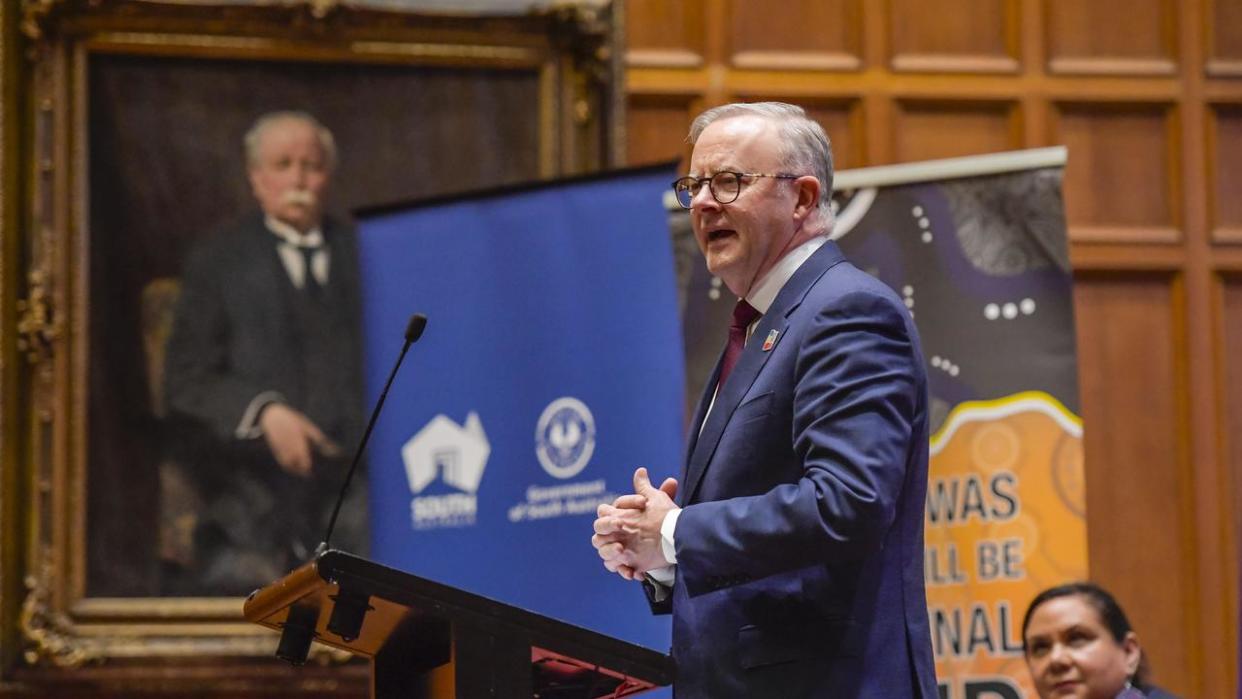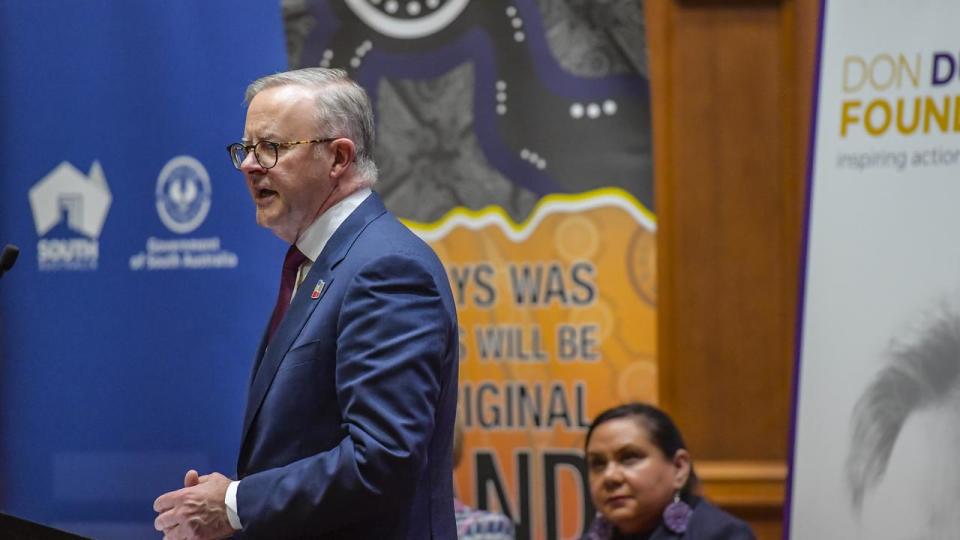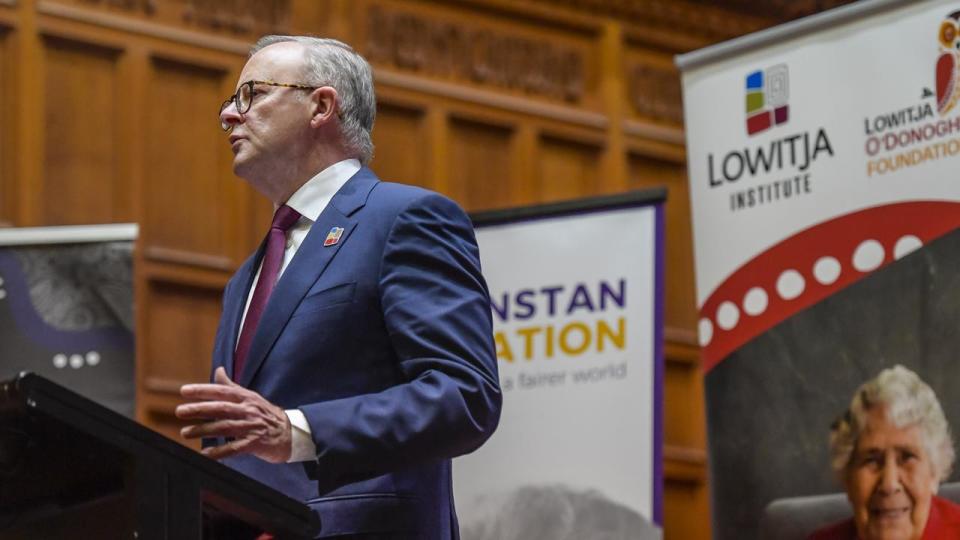Albo’s three-word plea to Australians

Prime Minister Anthony Albanese has pleaded to Australians to “do one better” than the 1967 referendum when they head to the polls later this year but concedes a lot of work is needed.
Mr Albanese delivered the Lowitja O’Donoghue Oration in Adelaide on Monday, honouring the influential Aboriginal leader, and renewing his plea for a successful Voice to parliament referendum later this year.
Australians will go to the polls sometime between October and December, where they will be asked to answer “yes” or “no” to whether they agree to constitutional recognition of Indigenous Australians in the form of a Voice to parliament and executive government.
In his speech, Mr Albanese harked back to the successful 1967 referendum, in which 90 per cent of voting age Australians agreed to amend the constitution to make laws for Aboriginal people and include them in the census.
Mr Albanese quoted Dr O’Donoghue herself as he said “the 1967 referendum was powerfully symbolic, a moment of national idealism”.

“But as we look back, let’s look ahead to something even brighter. In 1967, 90 per cent of Australians voted to remove a harmful, discriminatory relic,” he said.
“In 2023, our generation can go one better.
“Instead of removing a provision that no longer speaks for who we are, we can make a positive change that speaks for the future we seek to build. This can be a moment of Australian unity.”
Mr Albanese will said the success of the referendum would depend on “millions of conversations, between Australians of all backgrounds and faiths and beliefs”.
“As Lowitja O’Donoghue knows, as the spirit of ’67 shows, it‘s going to come down to shoe leather and door knocking and phone calls and the hard yards of mobilising and organising and patiently explaining the transformational opportunity that we have,” he said.
“Now here we are on the cusp of the moment Lowitja envisioned so long ago when she said to us: ‘Australia has an opportunity, rarely given twice, to redefine itself as a nation’.”

He said “after the 1967 referendum, we woke up as a better nation”.
“Who do we want to be when we wake up the morning after this referendum?” he will ask.
“I believe we will rise with a stronger sense of ourselves.”
Mr Albanese questioned how much the lives of Indigenous Australians had improved since the Stolen Generation, as he pleaded for Australians to bring them out of the margins.
“Lowitja herself has spoken of the gratitude she was expected to show as a child for being plucked out of her family by missionaries,” Mr Albanese said.
“We have to come to grips with the past because a country that does not acknowledge the full truth of its history is burdened by its unspoken weight.
“But we learn. We acknowledge. And bit by bit, as we each admit each truth into our midst like a shaft of light, we are easing that burden.
“We‘ve always been at our best when we’ve looked to the future with excitement and hope – that’s when we make progress.”
Mr Albanese’s speech comes as debate continues in the House of Representatives over the Constitution Alteration Bill.
All MPs have been given the opportunity to speak for or against the Voice before it moves to the Senate.
Once both Houses have passed the Bill, which sets out the question Australians will be asked at the polls, a date can be set.
In his oration, Mr Albanese called the Voice a “chance for change”.
“We get chances for change at regular intervals. A federal election every three years, a state or territory election every four,” he said.
“But this referendum is a once-in-a-lifetime opportunity.
“We are fortunate to be here in this moment in history, where we have within our hands the chance to make a positive change that will last for generations.
“A change that will outlast us.
“An enhancement of our democracy and, as Noel Pearson puts it, an act of faith and love.”


